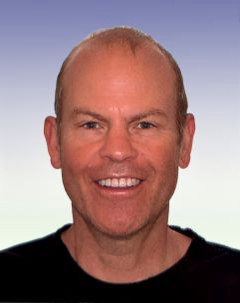Dr. Daromir Rudnyckyj

Professor, graduate advisor
Anthropology
Accepting graduate students
- Contact:
- Office: COR B210 daromir@uvic.ca 250-721-6273
- Credentials:
- PhD (U of California, Berkeley)
- Area of expertise:
- Money, capitalism, the state, ethnography. religion, finance, development, economy, globalization, social studies of finance, cryptocurrency, liberalism & neoliberalism, Southeast Asia, North America, Europe
Bio
Daromir Rudnyckyj is professor of anthropology at the University of Victoria, where he serves as director of the Counter Currency Laboratory and principal investigator for the Futures of Money project.
He is past president of the Society for the Anthropology of Religion and serves as a councillor for the American Ethnological Society. His research addresses money, religion, development, capitalism, finance, globalization and the state.
Courses
-
- ANTH 150 Money and Culture
- ANTH 329 Anthropology of Southeast Asia
- ANTH 400A History of Anthropological Theory
- ANTH 405 Advanced Economic Anthropology
- ANTH 483 Anthropology of Money in Theory and Practice
Current projects
This project, based in part at the counter currency laboratory in UVic’s Department of Anthropology examines how money is changing today.
A collaborative endeavour, with another base at Macquarie University in Australia, the project seeks to understand what the implications of these changes might be on human life, political forms, and social relationships.
New monetary forms ranging from cryptocurrencies and state-issued digital currencies to local and alternative exchange systems to mobile money and other forms of cashless payment portend significant changes to money and society.
Today money is mainly assumed to be state-issued currency, such as dollars, yen, euro, or pounds. As the dominance of state currencies appears to be waning, it is unclear how emergent forms will affect the ways in which we use money, the types of social relations they produce, and the implications for state governance.
The Future of Money Project seeks enhance understanding of money’s future forms via comparative research, developing a collaborative international network, and training of students in the social scientific study of money.
The counter currency laboratory is an interdisciplinary, collaborative research unit dedicated toward understanding the past, present, and future of money.
The lab has three main research foci: analyzing debates over money in Islamic economics and finance, examining how the production of money becomes the object of political intervention and activism, and researching alternative currency projects.
The lab is the repository for the entire archive of the Comox Valley Local Exchange Trading System (LETS), consisting of project files, founding documents, organizational documents, reporting documentation, plans, correspondence, ledgers, and other paper and digital files.
LETS are community exchange networks that provide information on goods and services available in a community and record transactions of members exchanging those goods and services in a local currency (unit of account) separate from state-issued money.
Founded in 1982, the Comox Valley LETS provided the first model for hundreds of LETS systems that have operated around the world. Through comparative research on alternatives to state-issued currency and bank credit, the Counter Currency Laboratory seeks to shed light on what money is and how it is changing today.
Selected publications
- 2019. Beyond Debt: Islamic Experiments in Global Finance. Chicago: University of Chicago Press.
- 2019. Southeast Asian edition published by National University of Singapore Press.
- 2021, Turkish edition. Borcun Ötesinde: Küresel Finansta Islami Deneyimler. Istanbul: Albaraka Yayınlar.
- 2017. Religion and the Morality of the Market. Cambridge, UK: Cambridge University Press (co-edited with Filippo Osella).
- 2010. Spiritual Economies: Islam, Globalization, and the Afterlife of Development. Ithaca: Cornell University Press.
- Rudnyckyj, Daromir. 2024. “Econography: Observing Expert Capitalism.” Current Anthropology
-
Rudnyckyj, Daromir. 2024. “The Protestantism of Neoliberalism.” Culture, Theory & Critique.
-
Rudnyckyj, Daromir. 2023. “Reconsidering Reciprocity and Capitalism.” Ethnography. 24(3).
-
Rudnyckyj, Daromir. 2022. “Regimes of Asceticism: Austerity and Thrift in a Spiritual Economy.” In Thrift and Its Paradoxes: From Domestic to Political Economy, edited by Catherine Alexander and Daniel Sosna. Berghan Books.
-
Rudnyckyj, Daromir. 2022. “Revisiting Capitalism and Islam in Southeast Asia.” In Routledge Handbook of Islam in Southeast Asia, edited by Khairudin Aljunied, 44-54. London & New York: Routledge.
-
2020. Rudnyckyj, Daromir and Jerome Whitington. “The Ethnography of the Global after Globalization.” Hau: Journal of Ethnographic Theory. 10(3).
- 2020. Rudnyckyj, Daromir. “Spiritual Economy as Mesoanalytics: An Ethnography of a Global Problem Space in Indonesia.” Hau: Journal of Ethnographic Theory. 10(3).
-
2018. Rudnyckyj, Daromir. “Crisis Effects,” Cultural Anthropology. 33(4).
- 2017. “Subjects of Debt: Financial Subjectification and Collaborative Risk in Malaysian Islamic Finance,” American Anthropologist. 119(2): 269-283.
- 2017. “Assembling Islam and Liberalism: Market Freedom and the Moral Project of Islamic Finance.” In Religion and the Morality of Markets, edited by Daromir Rudnyckyj and Filippo Osella. Cambridge, UK: Cambridge University Press.
- 2017. “Assembling Market and Religious Moralities.” In Religion and the Morality of Markets, edited by Daromir Rudnyckyj and Filippo Osella. Cambridge, UK: Cambridge University Press (with Filippo Osella).
- 2017. “Debating Form, Consuming Substance: Halal Authenticity in Malaysian Islamic Finance,” Practical Matters. 10: 1-14.
- 2017. “Objectifying Economies: Contemporary Themes in Economic Anthropology.” In Routledge Companion to Contemporary Anthropology, edited by Simon Coleman, Susan Hyatt, and Ann Kingsolver. London: Routledge.
- 2016. “Islamizing Finance: From Magical Capitalism to a Spiritual Economy,” Anthropology Today. 32(6): 8-12.
- 2015. “Religious Reform and Emerging Middle Classes.” In the Routledge Handbook of Religions in Asia, ed. Bryan Turner and Oscar Salemink, 329-342. London: Routledge.
- 2015. “Religion and Economic Development.” In the Routledge Handbook on Religions and Global Development, ed. Emma Tomalin, 405-417. London: Routledge.
- 2014. "Afterlives of Development." Symposium in Political and Legal Anthropology Review. 37(1). Co-edited with Anke Schwittay.
- 2014. “Regimes of Self-Improvement: Globalization and the Will to Work.” Social Text. 32(3): 109-127.
- 2014. “Economy in Practice: Islamic Finance and the Problem of Market Reason.” American Ethnologist. 41(1):110-127.
- 2014. “Islamic Finance and the Afterlives of Development in Malaysia." Political and Legal Anthropology Review. 37(1)69-88.
- 2014. “Introduction: Afterlives of Development." Political and Legal Anthropology Review. 37(1):3-9. (Co-authored with Anke Schwittay).
